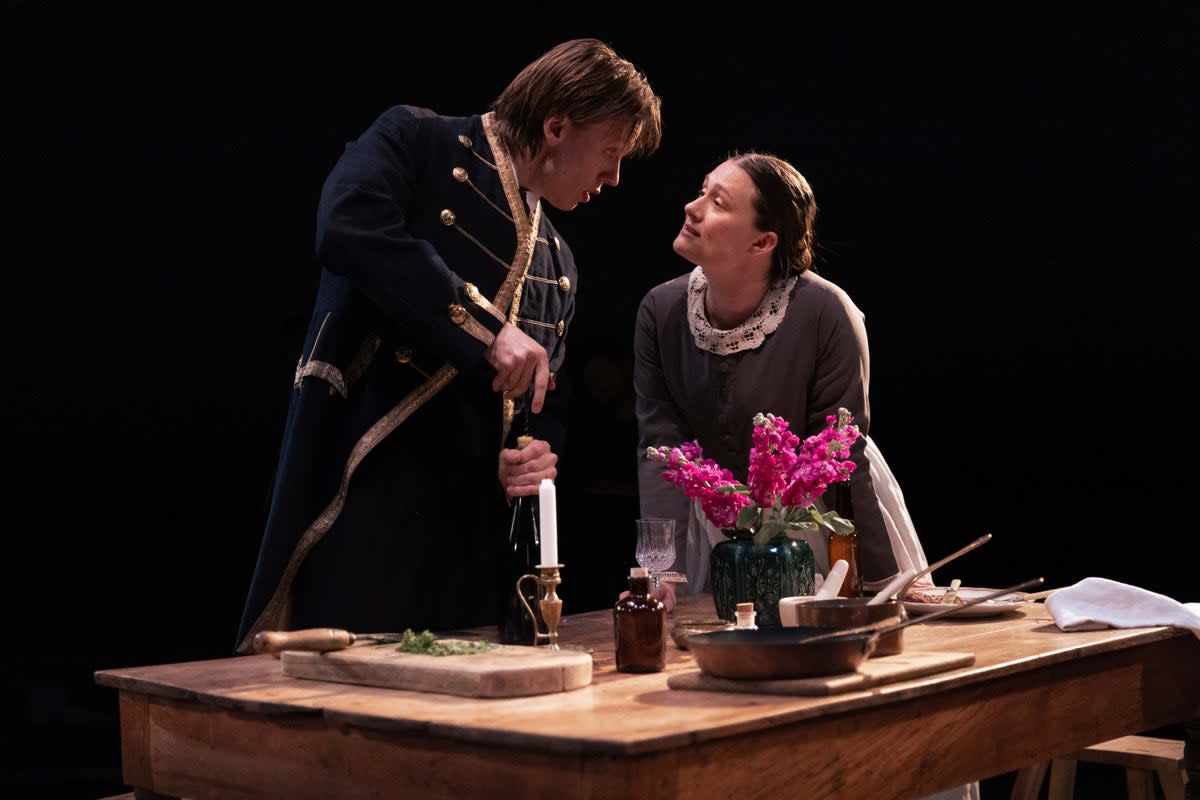Miss Julie at Park Theatre review: a fusty throwback

If you’re going to stage a faithful version of August Strindberg’s 1888 drama it needs to be acted with heartfelt conviction, and this one isn’t.
In Max Harrison’s production for Lidless Theatre, aristocrat Julie (Katie Eldred) and her servant Jean (Freddie Wise) seem to be going through the motions of a prearranged game, rather than engaged in a life or death struggle across the class divide.
I didn’t believe for a second in their passion, their hatred or their despair. The two piercing screams Julie emits – deafening in this small theatre – emphasise the emotional emptiness.
A study of the shifting power balance between two people trapped by convention and undone by sex, Miss Julie is perennially popular, but there’s a reason why contemporary film and theatre artists tend to update it.
The naturalism and sexual frankness that Strindberg pioneered can look hackneyed and quaint today, the language overemphatic. As with his near-contemporary and fellow-Scandinavian Henrik Ibsen, there’s no middle ground. The plays can be sublime or thuddingly awful.
Harrison uses a 1965 translation by Michael Meyer, whose decorous and literal approach went out of fashion in the Nineties. Jean speaks to his fiancée Christine (Adeline Waby) of a “hullabaloo” over Miss Julie breaking her engagement and celebrating by dancing with the servants on Midsummer Eve. He perves over her shape: “What shoulders and… et cetera.”
When she enters the kitchen where the action takes place Julie observes, in a formulation that might come from a Rishi Sunak soundbite: “It must be a terrible misfortune to be poor.”
We need a sense of the hierarchies in play – of the authority Julie wields and the frustration she feels at being held to a different standard to men. But Eldred is a bratty minx rather than a mistress, all eyelash-batting coquetry and writhing lips.
Jean should be a man hungry and angry for more than his birthright: Wise plays him as a stroppy fantasist. There’s no chemistry between him and Waby’s Christine, either, but she at least evinces some genuine disgust at the mutual transgression Jean and their supposed superior have committed.
It’s staged in the round with minimal but evocative design by Kit Hinchcliffe, and it should be intense: we’re close enough to see the kidneys Christine cooks for Jean, to smell the pollen from the flowers Jean frots in Julie’s face.
But we can also see that Julie is only primly disheveled after a supposed night of passion – a couple of bodice hooks undone – and that the killing of her greenfinch, the play’s signature moment, is a melodramatic fumble.
To be fair, after seeing Miss Julie transposed to a modern country house, to apartheid South Africa, and to the night of Labour’s 1945 landslide, there’s curiosity value in seeing this fusty throwback. But not much more than that.
To Sat 6 Jul, parktheatre.co.uk.


